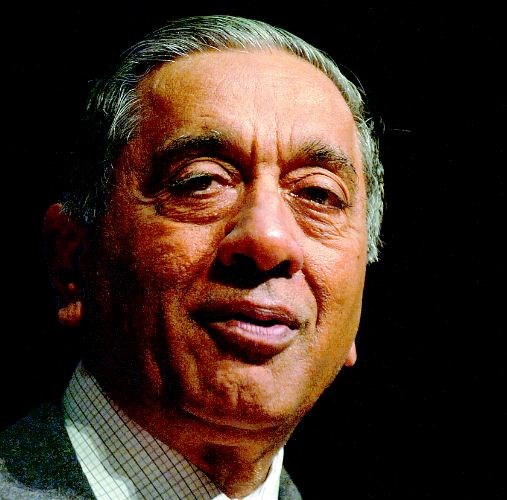Establishing a public transit system along the so-called Highway of Tears has won the backing of
Missing Women Inquiry Commissioner Wally Oppal.
Although not listed as a formal recommendation in his final report released this week, Oppal called on the provincial government to "immediately commit" to developing and implementing such a system "to provide a safer travel option connecting the Northern communities along Highway 16."
Oppal did formally recommend that the provincial government "support and implement" the 2006 Highway of Tears Symposium report, which calls for a shuttle bus system to "pickup and drop off young female passengers at all First Nation communities, towns and cities located along the
entire length of the highway between Prince George and Prince Rupert."
Seven shuttle buses would be required along the 724-kilometre stretch, according to the report.
Carrier Sekani Tribal Council chair Terry Teegee said he hopes Justice Minister and Prince George-Valemount MLA Shirley Bond will act on the recommendation and others listed in Oppal's report.
"Hopefully she follows through and that it's supported and that's just one of many recommendations in the Highway of Tears report," Teegee said.
Bond said in an e-mail that Transportation Minister Mary Polak is "developing a targeted consultation plan to identify safer transportation options with northern communities."
Following initial discussions in the new year, broader consultations will follow with the process completed by summer 2013, Bond said.
Oppal also called for the symposium's plan to be updated "to the current situation and in a manner that ensures involvement of all affected communities along Highway 16."
Teegee took that to mean another symposium may be in order.
"It's been six years so maybe it is a good thing to do," he said.
Bond said the Highway of Tears governing body is currently reviewing the symposium's original recommendations to assess which have been implemented, which are no longer relevant and which remain outstanding for consideration.
"Once this review is complete, [Justice] ministry staff will carefully consider any outstanding recommendations," Bond said.
Although primarily about how police handled the Robert Pickton murders, Oppal did spend time in communities along Highway 16 West during the inquiry, receiving 130 oral and written submissions during that leg of the inquiry.
At least one area woman is alleged to have been a Pickton victim although her case was one of 20 Crown decided against proceeding to trial after the Supreme Court of Canada upheld the original six convictions against Pickton.
Evidence of Jackie Murdock, a Takla First Nation member who went missing from Vancouver's Downtown Eastside in 1996, was allegedly found on Pickton's farm. She left behind five children in care of her extended family.
Oppal said he heard about the "connections between the northern and southern tragedies, between the Highway of Tears and the DTES [Downtown Eastside]."
The CSTC was among the several aboriginal groups who boycotted the inquiry over what they called limited terms of reference and the refusal by the provincial government to pay for lawyers to represent sex-trade workers and aboriginal women's organizations.
Teegee re-iterated their call for a national public inquiry into the hundreds of murders and disappearances of aboriginal women and girls. The Assembly of First Nations has also made such a call, as have a variety of other groups and the federal NDP.



